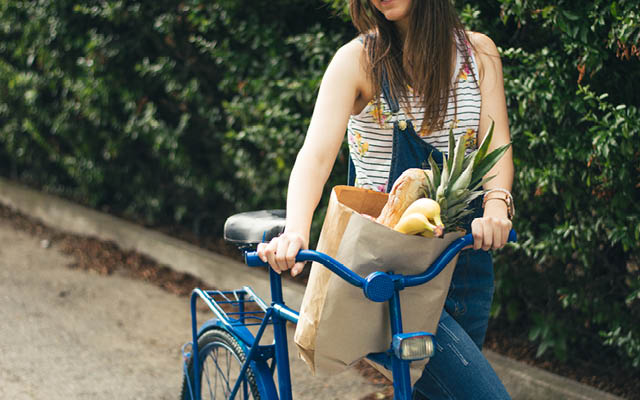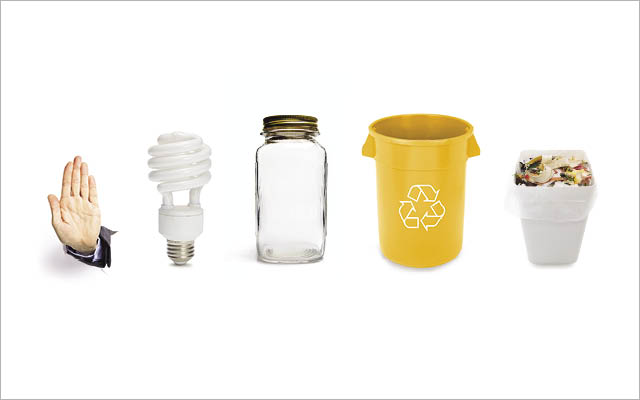Nike is making organic sportswear and talking about becoming a responsible global citizen. Ford is turning out hybrid SUVs from its much touted and newly “greened” Dearborn facility. Whole Foods is a $4 billion retailer doing more business per square foot than any other grocery store around. Citibank’s recent “Live Richly” campaign urges customers to put more emphasis on their quality of life and relationships, less on the pursuit of cold hard cash.
What gives? Whatever their other motives, it would seem that all these companies have one thing in common: a growing interest in addressing the desires of a powerful, values-driven group of consumers known affectionately (if somewhat awkwardly) as the LOHAS market.
Pronounced low-hoss, LOHAS stands for Lifestyles of Health and Sustainability, and it describes a more than $200 billion dollar marketplace comprising everything from organic foods and body care to socially responsible investing, alternative healthcare, renewable energy, and energy-efficient cars and appliances. It also describes a group of consumers who want to do business with companies that share their interests and priorities in these areas.
Mainstream Market
Make no mistake: This is not a splinter group of granola munchers, New Age oddballs or left-leaning radicals. According to quantitative research conducted over the course of the past three years by the Natural Marketing Institute (NMI), a research and consulting firm in Harleysville, Penn., (www.nmisolutions.com), nearly a third of U.S. adults embrace LOHAS values and priorities, including a strong interest in personal health and wellness, combined with a deep investment in environmental and social concerns.
But don’t bother to go looking for any I Love LOHAS bumper stickers out there. Most LOHAS consumers have no idea they’ve even been labeled as such and don’t have much sense of belonging to any particular group outside of the mainstream. This is not a market that can be easily described in terms of demographics like age, gender or income, or by any one enthusiasm or political party. Rather, LOHAS-leaning individuals are typically described in terms of psychographics: that is, by the broad group of intersecting values, concerns and priorities they share, and the criteria they use in making purchasing, investment and lifestyle decisions.
That said, it is possible to recognize LOHAS types (and possibly even peg yourself as one of them) by tracking certain key behaviors and beliefs (see below). You can also find LOHAS folks by looking at who is spending money in a few key sectors of the market. According to Conscious Media in Broomfield, Colo., (www.consciousmedia.com), organizers of an annual LOHAS forum and publishers of LOHAS Journal, five main market categories make up the LOHAS definition:
HEALTHY LIVING: This is the most common entry point to the LOHAS market. It encompasses organic foods, natural products, nutritional supplements, and a wide variety of health and fitness pursuits.
ALTERNATIVE HEALTHCARE: LOHAS consumers actively seek out information and services related to integrative healthcare and holistic disease prevention, including practices such as acupuncture, chiropractic and homeopathy.
PERSONAL DEVELOPMENT: Perceiving the connection between physical and mental health, LOHAS types take a strong interest in personal development and growth, including investigations of mind-body-emotion-spirit connections, self-help, leadership and life-balance topics. They are likely to take yoga, meditation and tai chi classes, as well as purchase books, listen to podcasts, and take classes on related subjects. They like to seek out new experiences and learning.
ECOLOGICAL LIFESTYLES: Because they see their own health and the planet’s health as inherently tied, LOHAS consumers tend to embrace recycling, green building, ecotourism and all sorts of eco-friendly home and office products. They are better informed than average about ecological topics.
SUSTAINABLE ECONOMY: From renewable energy sources and socially responsible investing to fair-trade principles and “triple bottom line” accounting (which considers social and environmental performance, as well as fiscal profits), LOHAS consumers like to promote fair, ethical and sustainable business practices. They prefer doing business with companies that promote a holistic worldview and that share their values.
Healthy Priorities
A commitment to personal health — or their child’s health — is often the factor that turns people on to LOHAS ideals. They see a strong connection between their personal health and the health of the environment around them. And in many (but not all) cases, they are willing to put their money where their values are.
This may explain why 250 square feet or so of your local grocery is now dedicated to things like organic broccoli, why the box that holds your favorite breakfast bars is heralded as being made of 98 percent post-consumer recycled paper and why many cosmetics now proudly proclaim that they are cruelty-free. It explains why Aveda is doing so well with plant-based hair care and body products; why Clif Bar uses 70 percent organic ingredients and makes sure its shipping boxes double as display boxes; why HP is creating a fully recycled scanner; and why Toyota ads are as likely to tout their environmentally responsible manufacturing processes as they are their latest Prius hybrid.
These changes reflect the shifting values of nearly one in three American shoppers, as calculated by the NMI annual survey of more than 2,000 households. For the past three years, they’ve quantified — with 95 percent confidence and +/-2 percentage points — four distinct consumer segments as profiled below:
LOHAS CONSUMERS, accounting for 27 percent of the U.S. adult population (55 million people) in 2004, are label readers, savvy media consumers, early adopters and influencers. They’re likely reading the fine print on Starbucks fair-trade coffee to learn about the social justice and environmental issues associated with growing coffee beans. All pertinent information in hand, a LOHAS consumer is likely to switch to fair-trade brew and to start singing its shade-grown praises to family and friends.
NOMADICS, at 37 percent (77 million adults), are the largest, most fluid group. The nomadic may do his yoga practice in the morning, feed his daughter organic, sugar-free cereal, then hop in his oversized SUV to grab breakfast at McDonald’s on the way to work. Some LOHAS-like behaviors creep in, but it’s not a fully integrated lifestyle. Within this group, however, 45 percent are on their way to becoming LOHAS (up from 39 percent in 2003). The rest are either comfortable with their contradictions or are moving away from LOHAS behaviors.
CENTRISTS, at 29 percent (60 million adults), have more conservative attitudes toward health, social justice and environmental issues.
INDIFFERENTS, at 8 percent (16 million adults), are caught up in day-to-day challenges and either aren’t aware of or don’t care about LOHAS issues.
More than anything, what separates LOHAS types from non-LOHAS types is an abiding interest in integrating their values across many areas of their lives. “It’s been said that LOHAS consumers don’t just care about what they put in their bodies, but also what they put their bodies in,” says Gwynne Rogers, a strategic marketing consultant at NMI. “When we ask people [in our annual LOHAS behavior survey] why they buy green building products, eat organic food or use renewable power, their personal health is as much a driver as reducing environmental impact. They like that they can make small choices, through their purchases and habits, that support both concerns.”
How LOHAS Are You
Take this quiz from the researchers at the Natural Marketing Institute (NMI) to find out whether you’re living LOHAS. Answer the questions with rarely, sometimes or usually, then add your points to see which segment you’re in. If you’re response is rarely, give yourself 1 point; for sometimes, give yourself 2 points; for usually, score 3 points.
- I care about maintaining excellent physical health.
- I care about protecting the environment.
- I care about sustainable agriculture practices.
- I care about using renewable energy sources.
- I tell family and friends about the benefits of purchasing environmentally friendly products.
- I care about women’s issues.
- I care about social consciousness.
- I prefer to buy products from companies whose values are like mine.
- I like choosing environmentally friendly products and services.
- I’m willing to pay 20 percent more for environmentally friendly products.
26-30 Points: You’re a LOHAS consumer. You care deeply about the environment and society, and you act on those behaviors. You likely buy a lot of organic foods, drive a fuel-efficient car and live in an eco-friendly home. People look to you for advice and information on the environment and society.
20-25 Points: You’re a NOMADIC. You care about some of these issues but not all of them all of the time. You take action in some parts of your life but have not totally adopted a LOHAS lifestyle.
15-19 Points: You’re a CENTRIST. You are slightly more conservative than your LOHAS and NOMADIC peers. While some of these behaviors and ideas appeal to you, they are not top priorities in your life.
10-14 Points: You’re an INDIFFERENT. You are committed to other immediate concerns in your life and don’t think a great deal about the quality of the environment and society.
This article has been updated. It was originally published in the April 2005 issue of Experience Life.




This Post Has One Comment
[…] to Conscious Media, there are 5 main market categories make up the LOHAS […]